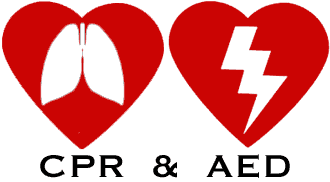To all LPGN owners and residents:
Training in Cardio-Pulmonary Resuscitation (CPR) and Automatic External Defibrillation (AED) as a life-saving measure will be offered in the clubhouse by John Oliver, EMT-Paramedic, LHP Fire Department, Rescue Supervisor and CPR/AED instructor.
The (informal) Health Committee of LPGN (eight members with medical-related backgrounds) and LPGN Board members were offered this course and 11 participated on 2/7/18. All agreed that it was very worthwhile and would like the LPGN Board of Directors to purchase the AED equipment.
The cost is $1280 for the equipment, including both adult and pediatric and the wall cabinet. It would be hung on the outside clubhouse wall next to the pool. This would be used by any and all in case of sudden cardiac arrest and unconsciousness. To learn more about CPR and AED, go to Google on the internet and enter CPR-AED.
We are very appreciative that the LHP Fire Dept. provided the initial course. The cost of this 3-hour training is @ $35.00, including a booklet. A training session has been arranged with John Oliver for either Tuesday, 3/13/18, at 9 AM or Friday, 3/16/18 at 1 PM. In the clubhouse.
Maximum class size is 10. If 16 or 20 are interested he will do both times. More courses can be arranged as needed.
Please indicate your time preference NOW (or if either time is acceptable) by email to both the LPGN office pointl@bellsouth.net and to dnkluge@aol.com. Then deposit $35 in cash or check in the clubhouse by Wednesday March 7th so we can let John know how many to plan for. First email plus deposit, first served.
|
Name |
Email address |
Tues. 3/13/18, 9 AM |
Fri. 3/16/18, 1 PM |
Either time |
|
|
|
|
|
|
|
|
|
|
|
|
|
|
|
|
|
|
Florida law provides immunity from lawsuits for citizen CPR/AED by the 1997 Good Samaritan Act.
Florida Act of 2006 requires AEDs in all public schools with high school athletics.
Florida Act of 2010 requires assisted living facilities with 17 or more beds to possess an AED.
Bystander Use Of Defibrillator May Increase Likelihood Of Surviving Cardiac Arrest, Study Suggests.
Reuters (2/26, Rapaport) reports that research suggests “cardiac arrest patients may be more likely to survive and avoid permanent disabilities when bystanders use a defibrillator to treat them before an ambulance arrives.” The findings were published in Circulation.
HealthDay (2/26, Reinberg) reports that investigators found that individuals “who got a shock from a bystander using a publicly available automated external defibrillator (AED) were more than twice as likely to survive and leave the hospital as those who didn’t.” Additionally, “they were more than twice as likely to leave the hospital with their mental abilities intact.”

